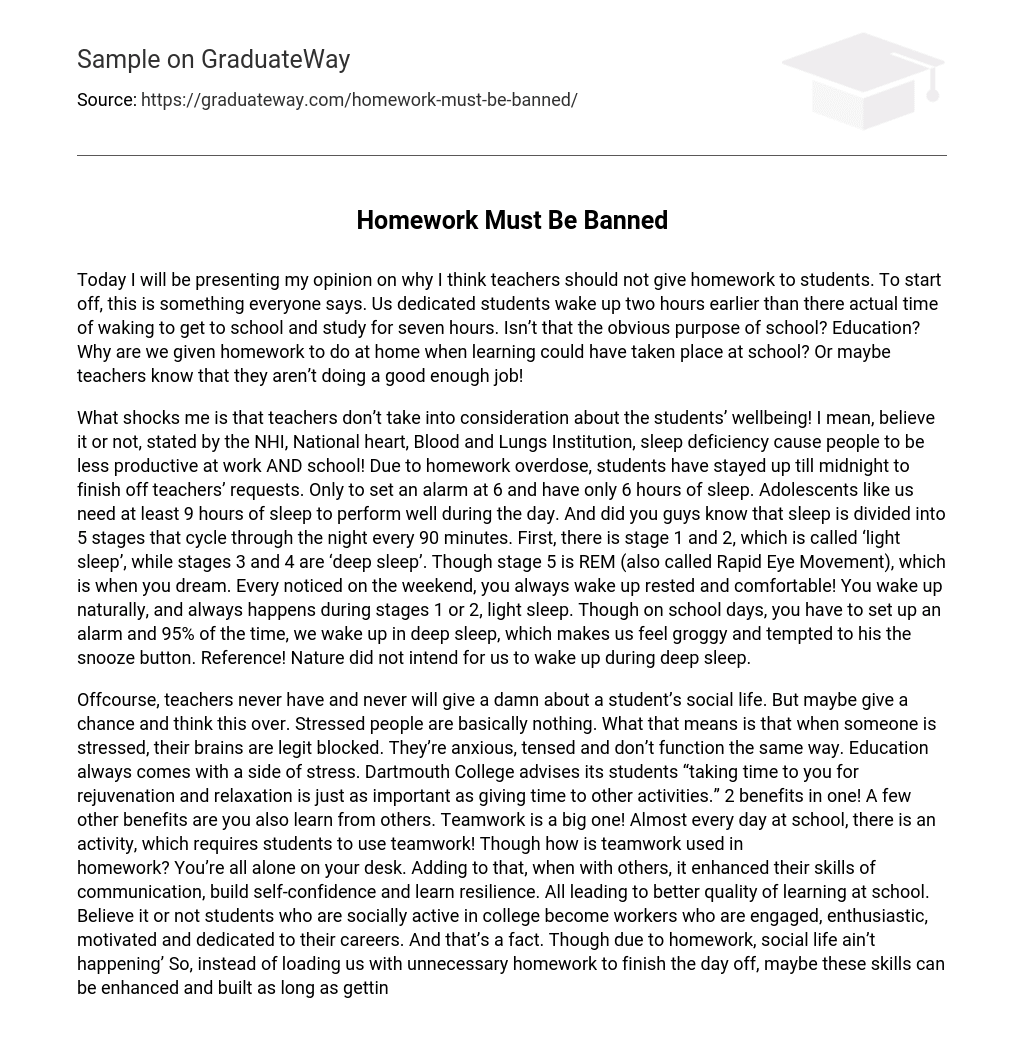Today, I will express my perspective on the controversial subject of teachers assigning homework to students. It is a topic that sparks widespread debate. Many students, including myself, wake up earlier than needed and spend extensive hours studying at school. Isn’t education the main objective of attending school? It appears contradictory to be given homework to do at home when learning could have been accomplished during the school day. Maybe teachers assign homework because they believe they are not effectively teaching in the classroom.
The disregard of teachers for their students’ well-being is shocking. Lack of sleep, as stated by the National Heart, Blood and Lungs Institution (NHI), diminishes productivity in both work and school settings. Students often sacrifice precious sleep hours to complete homework assignments, resulting in only 6 hours of sleep instead of the recommended 9 hours for optimal performance. Sleep consists of 5 stages that occur in cycles every 90 minutes throughout the night. The initial two stages are known as “light sleep,” followed by the subsequent two stages referred to as “deep sleep.” The fifth stage, REM (Rapid Eye Movement), is when dreaming occurs. On weekends, individuals naturally awaken during light sleep and experience a refreshed and comfortable feeling. Conversely, on school days alarms are set which frequently interrupt deep sleep, leaving individuals feeling groggy and tempted to hit the snooze button. This contradicts nature’s intended design for us to wake up during light sleep.
Teachers have traditionally disregarded a student’s social life and likely always will. However, it is worth considering the potential benefits. Stressed individuals struggle to function properly, as their brains become blocked by anxiety and tension. Education is inherently stressful, but Dartmouth College advises students to prioritize rejuvenation and relaxation alongside other activities. This approach offers two benefits in one. Additionally, socializing allows students to learn from others and develop crucial teamwork skills. While homework may seem solitary, collaborating with peers improves communication, self-confidence, and resilience, ultimately leading to a higher quality of education. Surprisingly, socially active college students are more engaged, enthusiastic, motivated, and dedicated in their careers. Unfortunately, homework often impedes a student’s social life. Instead of burdening us with unnecessary assignments, we should consider nurturing these skills and ensuring sufficient relaxation to counter the stress imposed by school.
In essence, what I am trying to express is that people have diverse perspectives, yet I feel it is important to reflect upon these.
Shankchu!





